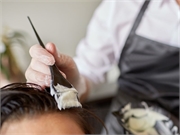No Link Between Permanent Hair Dyes and Cancer: Study
By Alan MozesHealthDay Reporter

THURSDAY, Sept. 3, 2020 (HealthDay News) -- Millions of people color their own hair, even though some of the chemicals in permanent hair dyes are considered possible carcinogens.
So, is home hair coloring safe?
According to a new study, the answer is a qualified yes.
After tracking cancer risk among more than 117,000 U.S. women for 36 years, the investigators found that personal use of permanent hair dyes was not associated with any increase in the risk of developing bladder, brain, colon, kidney, lung, blood or immune system cancer. Nor were these dyes linked to an uptick in most skin or breast cancers.
"We observed no positive association between personal permanent hair dye use and risk of most cancers or cancer-related mortality," said study lead author Dr. Yin Zhang, a research fellow in medicine with Brigham and Women's Hospital, Harvard Medical School and the Dana-Farber Cancer Institute, in Boston.
But permanent dye use was linked to a slightly increased risk for basal cell carcinoma (skin cancer), ovarian cancer and some forms of breast cancer.
In addition, an increased risk for Hodgkin lymphoma was observed, but only among women whose hair was naturally dark. The research team said it remained unclear as to why, but speculated that it could be that darker dyes have higher concentrations of problematic chemicals.
The findings were published online Sept. 2 in the BMJ.
The study team noted that somewhere between 50% and 80% of American and European women aged 40 and up color their hair. One in 10 men do the same.
According to the American Cancer Society (ACS), hair dyes are regulated as cosmetics by the U.S. Food and Drug Administration. But the FDA places much of the safety burden on manufacturers.
Permanent dyes account for roughly 80% of all dyes used in the United States and Europe, the study noted, and an even higher percentage in Asia.
Why? Because "if you use permanent hair dyes, the color changes will last until the hair is replaced by new growth, which will be much longer than that of semi-permanent dyes, [which] last for five to 10 washings, or temporary dyes, [which last] one to two washings," Zhang said.
The problem? Permanent hair dyes are "the most aggressive" type on the market, said Zhang, and the kind "that has posed the greatest potential concern about cancer risk."
According to the ACS, the concern centers on the ingredients in hair dyes, such as aromatic amines, phenols and hydrogen peroxide.
Prior investigations have turned up signs of trouble, with some (though not all ingredients) finding a link between dye use and blood cancers and breast cancer.
Still, the ACS points out that research looking into any association between such dyes and cancer risk have had mixed results. And studying hair dyes can be a moving target, as different dyes contain different ingredients, and the composition of those ingredients may change over time.
For example, ACS experts noted that studies conducted in the 1970s found that some types of aromatic amines appeared to cause cancer in animal studies. As a result, some dye manufacturers have dropped amines from their dye recipes.
The latest study focused on U.S. women who were enrolled in the ongoing Nurses' Health Study. All were cancer-free at the study's start, and all reported if they had ever used a permanent hair dye.
Zhang's team concluded that using the dye did not appear to significantly raise the risk for most cancers. But investigators stressed that they did not definitively establish that such dyes do or do not raise cancer risk, given that their work was purely observational.
"Current evidence regarding the carcinogenic potential of personal use of permanent hair dyes are not conclusive," Zhang said, adding that "further investigations are needed."
So, what should women do?
The ACS says, "There is no specific medical advice for current or former hair dye users."
But Zhang suggested that consumers carefully follow directions -- such as "using gloves, keeping track of time, [and] rinsing the scalp thoroughly with water after use" -- to reduce any potential risk.
More information
There's more on hair dyes and cancer risk at the American Cancer Society.

The news stories provided in Health News and our Health-E News Newsletter are a service of the nationally syndicated HealthDay® news and information company. Stories refer to national trends and breaking health news, and are not necessarily indicative of or always supported by our facility and providers. This information is provided for informational and educational purposes only, and is not intended to be a substitute for medical advice, diagnosis, or treatment.

